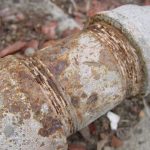Flushable wipes have become a popular household item, marketed as a convenient and hygienic alternative to traditional toilet paper. However, despite their name, these wipes can pose a significant risk of clogging toilets and causing plumbing problems. While manufacturers claim that flushable wipes are safe for sewage systems, many experts and plumbers caution against flushing them down the toilet. The issue lies in the fact that these wipes are designed to be durable and resistant to breaking down, which can lead to clogs and blockages in pipes. Even wipes labeled as “flushable” or “biodegradable” can still cause issues because they may not disintegrate as quickly as regular toilet paper. As these wipes accumulate in pipes, they can combine with other materials like grease, hair, and debris, creating massive clogs that can be difficult and costly to remove. Additionally, flushing wipes can harm septic systems and wastewater treatment facilities, leading to environmental concerns and potential fines or legal issues for homeowners.
Flushable wipes have gained popularity for their convenience, but they can wreak havoc on plumbing systems and lead to costly clogs and repairs. Here are reasons why flushable wipes can clog toilets:
Non-disintegrating Material
Flushable wipes are often made from materials like polyester, polypropylene, or wood pulp, which are not designed to disintegrate as easily as toilet paper. Unlike toilet paper, which breaks down quickly upon contact with water, flushable wipes can remain intact, leading to accumulation in pipes and causing blockages. These non-disintegrating materials can cling to the walls of pipes, catching other debris and contributing to clogs over time. As a result, even wipes labeled as “flushable” can pose a risk to plumbing systems due to their slow breakdown process.
Lack of Water Solubility
Unlike toilet paper, which is specifically designed to dissolve quickly in water, flushable wipes may lack water solubility. While toilet paper breaks down rapidly upon flushing, flushable wipes may retain their structural integrity for longer periods, especially if they contain synthetic fibers or other non-biodegradable materials. This resistance to dissolution can lead to the accumulation of wipes in the plumbing system, increasing the likelihood of clogs and blockages. Additionally, in areas with hard water or low water pressure, the lack of water solubility in flushable wipes can exacerbate the problem by impeding the flushing process.
Thicker and Stronger Construction
Flushable wipes are often thicker and more durable than traditional toilet paper, making them less prone to tearing or disintegrating in water. While this durability may be desirable for cleaning purposes, it can pose challenges when flushed down the toilet. The robust construction of flushable wipes allows them to withstand the flushing process and travel through the plumbing system without breaking apart. However, this same strength can contribute to their persistence in the pipes, as they are less likely to disintegrate or fragment compared to toilet paper. As a result, even a single flushable wipe can pose a risk of causing a blockage in the plumbing system.
Adhesive Ingredients
Some flushable wipes contain adhesive ingredients such as resins or glues that help maintain their structural integrity during use. While these adhesives serve a purpose in keeping the wipes together, they can also contribute to clogs when flushed down the toilet. Residual adhesive on the wipes can adhere to the walls of pipes, creating a sticky surface that attracts other debris and impedes the flow of water. Over time, this accumulation of adhesive and debris can lead to blockages and backups in the plumbing system, requiring costly repairs to resolve.
Misleading Labeling
Despite being marketed as “flushable,” many wipes labeled as such do not break down sufficiently to safely pass through plumbing systems without causing issues. While these wipes may technically be capable of being flushed down the toilet, they often fail to disintegrate as quickly or completely as toilet paper. This discrepancy between labeling and performance can lead consumers to mistakenly believe that flushable wipes are safe for flushing, inadvertently contributing to clogs and blockages in their plumbing systems. As a result, it is essential for consumers to exercise caution and discretion when using flushable wipes and to be aware of the potential risks associated with their disposal.
Increased Usage
The growing popularity of flushable wipes has led to an increase in their usage, both in residential and commercial settings. However, the widespread use of flushable wipes has also contributed to a rise in plumbing problems, including clogs and blockages. Unlike toilet paper, which breaks down readily in water, flushable wipes can accumulate in pipes and sewer systems, leading to backups and overflows. The sheer volume of flushable wipes being flushed down toilets exacerbates the problem, as it overwhelms the capacity of plumbing systems to handle the influx of non-biodegradable materials. This increased usage of flushable wipes highlights the need for greater awareness and education regarding their proper disposal and the potential consequences of flushing them down the toilet.
Inadequate Municipal Sewer Systems
Municipal sewer systems are designed to transport and treat wastewater from homes and businesses, but they are not always equipped to handle the disposal of flushable wipes. Unlike toilet paper, which disintegrates quickly in water, flushable wipes can remain intact and accumulate in sewer lines, pumping stations, and treatment facilities. This can lead to blockages, equipment malfunctions, and increased maintenance costs for municipal authorities. Inadequate sewer infrastructure, combined with the growing popularity of flushable wipes, has strained many municipal sewer systems, resulting in service disruptions and environmental concerns. As a result, some municipalities have urged residents to refrain from flushing flushable wipes and instead dispose of them in the trash to avoid costly repairs and environmental damage.
Risks to Home Plumbing Systems
Flushable wipes can pose significant risks to home plumbing systems, including clogs, blockages, and pipe damage. When flushed down the toilet, flushable wipes can accumulate in pipes, traps, and bends, restricting the flow of water and causing backups. Over time, the buildup of wipes and other debris can lead to more serious issues such as pipe corrosion, leaks, and structural damage. Additionally, the cost of repairing or replacing damaged plumbing components can be substantial, placing a financial burden on homeowners. To avoid these risks, homeowners should exercise caution when using flushable wipes and dispose of them properly in the trash instead of flushing them down the toilet.
Impact on Septic Systems
Flushable wipes can also have adverse effects on septic systems, which rely on the natural breakdown of waste materials to function properly. Unlike toilet paper, which decomposes readily in septic tanks, flushable wipes can persist in the system, leading to clogs, backups, and costly repairs. The non-biodegradable materials used in flushable wipes can accumulate in the septic tank and leach field, interfering with the treatment process and potentially causing system failure. As a result, homeowners with septic systems are advised to avoid flushing flushable wipes and to dispose of them in the trash to prevent damage to their systems and avoid costly repairs.
Environmental Impact
In addition to causing problems in plumbing systems, flushable wipes can also have negative environmental impacts when improperly disposed of. Unlike toilet paper, which is biodegradable and breaks down naturally in the environment, flushable wipes can persist for long periods in waterways, rivers, and oceans. The non-biodegradable materials used in flushable wipes can harm aquatic ecosystems, endanger wildlife, and contribute to pollution. Additionally, the chemicals and additives present in some flushable wipes can leach into the environment, contaminating water sources and posing risks to human health. To mitigate these environmental impacts, it is essential for consumers to dispose of flushable wipes properly and to avoid flushing them down the toilet.
Accumulation in Sewer Lines
Flushable wipes can accumulate in sewer lines, particularly in areas where the flow of wastewater is slower or restricted. As flushable wipes travel through sewer lines, they can become lodged in bends, junctions, or areas with reduced flow, creating blockages that impede the movement of wastewater. Over time, this accumulation can worsen, leading to complete obstructions that require costly repairs and interventions by sewer maintenance crews. The presence of flushable wipes in sewer lines exacerbates the risk of sanitary sewer overflows, which can pose health hazards and environmental concerns. Therefore, proper disposal of flushable wipes in the trash is essential to prevent the accumulation and subsequent blockage of sewer lines.
Impact on Water Treatment Facilities
Flushable wipes can also impact water treatment facilities when they are flushed down toilets and enter the wastewater treatment process. Unlike toilet paper, which breaks down easily and can be processed by wastewater treatment plants, flushable wipes can resist decomposition and remain intact during treatment. As a result, flushable wipes can accumulate in screens, filters, and other equipment at wastewater treatment facilities, leading to operational disruptions, increased maintenance costs, and decreased treatment efficiency. Additionally, the presence of flushable wipes in treated wastewater can pose challenges for downstream processes such as disinfection and nutrient removal, potentially compromising the quality of treated effluent discharged into water bodies. Proper disposal of flushable wipes in the trash helps prevent these issues and supports the effective operation of water treatment facilities.
The widespread use of flushable wipes poses significant risks to plumbing systems, sewer infrastructure, and the environment. Despite their convenience, flushable wipes can cause costly clogs, blockages, and damage to pipes, sewer lines, and wastewater treatment facilities. Additionally, their non-biodegradable materials and chemical additives can harm aquatic ecosystems and contribute to pollution. To mitigate these risks, it is essential for consumers to exercise caution when using flushable wipes and to dispose of them properly in the trash instead of flushing them down the toilet. By taking responsible actions, individuals can help protect plumbing systems, sewer infrastructure, and the environment for future generations. Consider contacting a professional plumber for expert assistance when you are experiencing clogged toilets.





